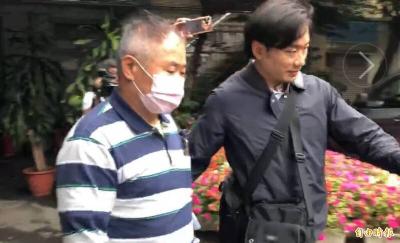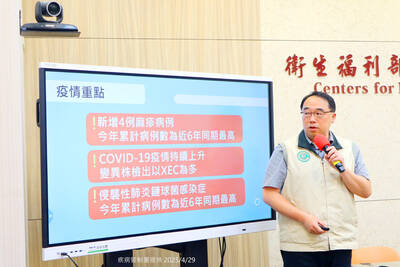Subway Taiwan said yesterday that its sandwich breads do not contain azodicarbonamide, a plastic-based additive that has been found in breads sold by the sandwich chain in North America.
Subway Greater China region spokeswoman Liao Mei-yuan (廖梅媛) said the bread at Subway restaurants in Taiwan is made from frozen dough supplied by New Zealand bakery Yarrows.
Yarrows has issued a statement confirming that it does not use the ingredient in any of its products, and a copy of the statement has been posted on the Facebook page of Subway Taiwan, Liao said.
Azodicarbonamide is a chemical used to make yoga mats, shoe soles and other rubber-like objects to add elasticity. However, it is approved by the US Food and Drug Administration as a dough conditioner.
Vani Hari, creator of the US food blog Food Babe, has been promoting a campaign since 2012 to urge Subway to remove the chemical from its breads after discovering that the sandwich maker has been selling bread using the ingredient.
Hari says azodicarbonamide can be found in almost all the breads at Subway restaurants in North America, and that the WHO has linked the chemical to respiratory issues, allergies and asthma.
Subway issued a statement on Wednesday saying that it is in the process of removing azodicarbonamide as part of its improvement efforts and that the complete conversion “will be done soon.”

A fugitive in a suspected cosmetic surgery fraud case today returned to Taiwan from Canada, after being wanted for six years. Internet celebrity Su Chen-tuan (蘇陳端), known as Lady Nai Nai (貴婦奈奈), and her former boyfriend, plastic surgeon Paul Huang (黃博健), allegedly defrauded clients and friends of about NT$1 billion (US$30.66 million). Su was put on a wanted list in 2019 when she lived in Toronto, Canada, after failing to respond to subpoenas and arrest warrants from the Taipei District Prosecutors’ Office. Su arrived at Taiwan Taoyuan International Airport at 5am today on an EVA Air flight accompanied by a

A 79-year-old woman died today after being struck by a train at a level crossing in Taoyuan, police said. The woman, identified by her surname Wang (王), crossed the tracks even though the barriers were down in Jhongli District’s (中壢) Neili (內壢) area, the Taoyuan Branch of the Railway Police Bureau said. Surveillance footage showed that the railway barriers were lowered when Wang entered the crossing, but why she ventured onto the track remains under investigation, the police said. Police said they received a report of an incident at 6:41am involving local train No. 2133 that was heading from Keelung to Chiayi City. Investigators

The Keelung District Prosecutors’ Office today requested that a court detain three individuals, including Keelung Department of Civil Affairs Director Chang Yuan-hsiang (張淵翔), in connection with an investigation into forged signatures used in recall campaigns. Chang is suspected of accessing a household registration system to assist with recall campaigns targeting Democratic Progressive Party (DPP) city councilors Cheng Wen-ting (鄭文婷) and Jiho Chang (張之豪), prosecutors said. Prosecutors yesterday directed investigators to search six locations, including the Chinese Nationalist Party’s (KMT) Keelung office and the residences of several recall campaign leaders. The recall campaign leaders, including Chi Wen-chuan (紀文荃), Yu Cheng-i (游正義) and Hsu Shao-yeh

COVID-19 infections have climbed for three consecutive weeks and are likely to reach another peak between next month and June, the Centers for Disease Control (CDC) said yesterday. Weekly hospital visits for the disease increased by 19 percent from the previous week, CDC Epidemic Intelligence Center Director Guo Hung-wei (郭宏偉) said. From Tuesday last week to yesterday, 21 cases of severe COVID-19 and seven deaths were confirmed, and from Sept. 1 last year to yesterday, there were 600 cases and 129 deaths, he said. From Oct. 1 last year to yesterday, 95.9 percent of the severe cases and 96.7 percent of the deaths